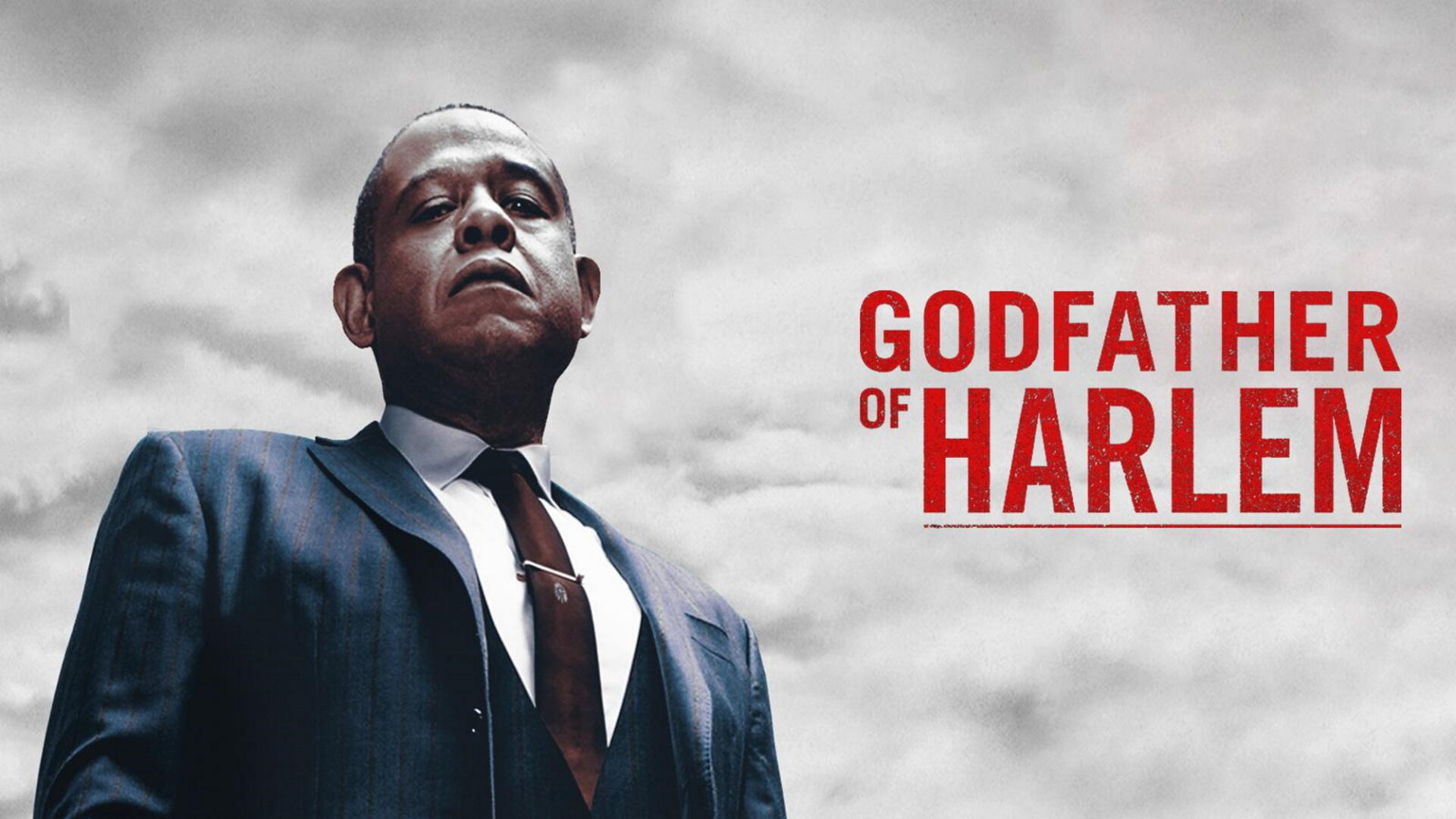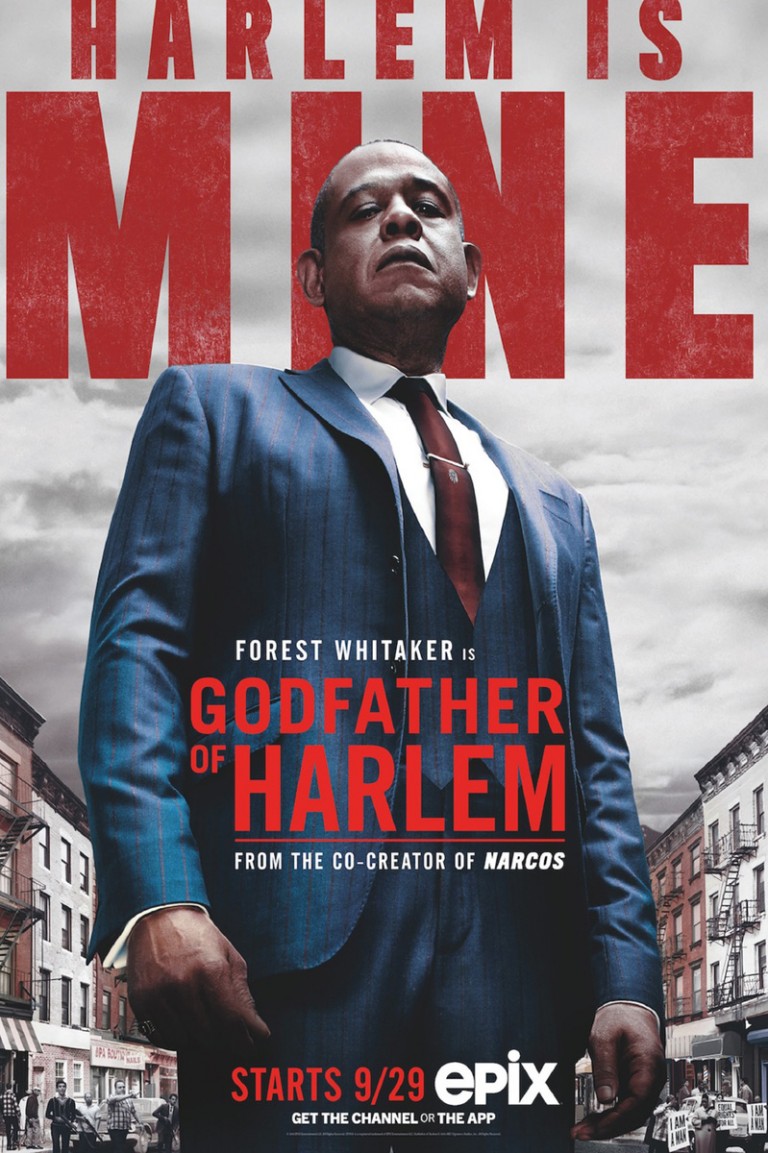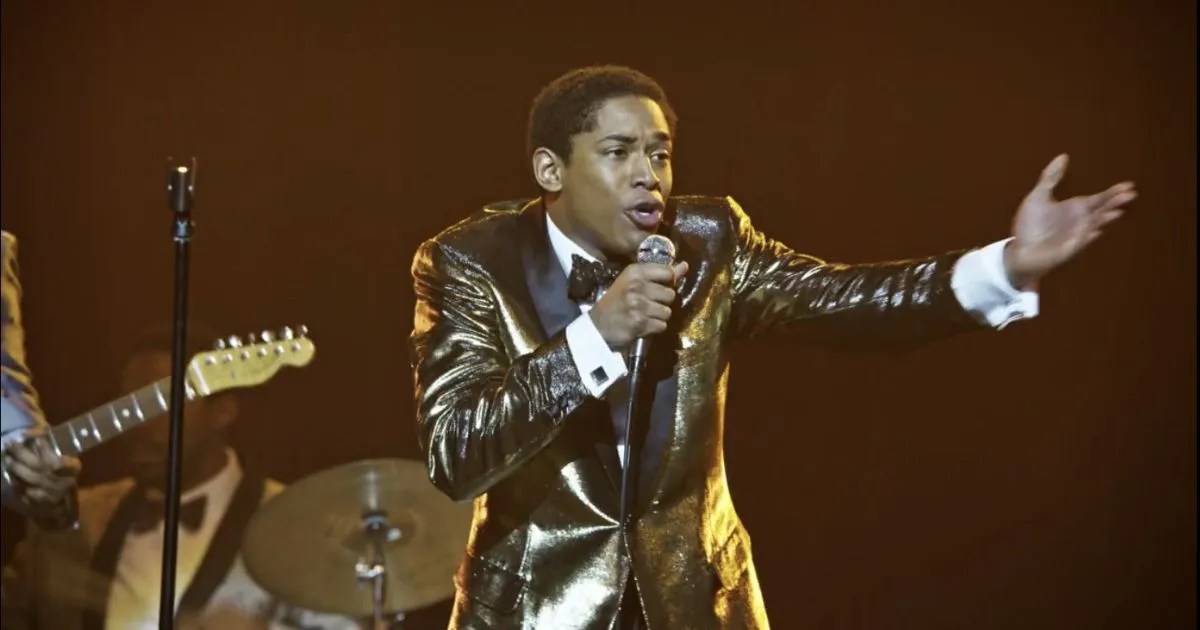Exclusive Godfather Of Harlem Who Is Teddy: A Journey into the Story of Bumpy Johnson
As a noun, "Exclusive Godfather Of Harlem Who Is Teddy" refers to the prominent African-American gangster Ellsworth "Bumpy" Johnson, who controlled Harlem's criminal underworld in the mid-20th century. This underworld figure, also known as "Teddy Green," played a significant role in shaping the neighborhood's social, economic, and political landscape.
Johnson's influence extended beyond Harlem, as he established alliances with high-ranking political figures, celebrities, and other crime syndicates. His reputation as a feared yet respected leader made him a central figure in the Harlem Renaissance. Understanding the life and impact of Bumpy Johnson sheds light on the complex racial dynamics, criminal organizations, and social transformations that characterized Harlem during a transformative era.
Exclusive Godfather Of Harlem Who Is Teddy
The life and legacy of Bumpy Johnson, known as the "Exclusive Godfather Of Harlem," encompass various essential aspects that provide a multifaceted understanding of his role and impact on Harlem and beyond.
- Criminal Empire: Johnson's control over Harlem's criminal underworld.
- Political Influence: His alliances with high-ranking politicians and community leaders.
- Harlem Renaissance: Johnson's presence as a central figure during this cultural movement.
- Racial Dynamics: The complexities of race relations in mid-20th century Harlem.
- Economic Power: Johnson's wealth and control over legitimate businesses.
- Celebrity Connections: His relationships with entertainers and other celebrities.
- Syndicate Alliances: Johnson's connections to criminal organizations outside Harlem.
- Legal Battles: His numerous encounters with law enforcement and the legal system.
- Personal Life: Johnson's family, relationships, and personal interests.
- Historical Legacy: The lasting impact of Johnson's life and career on Harlem and American history.
These aspects are interconnected, shedding light on Johnson's complex and influential role in various spheres. His criminal empire, for instance, was not merely about illegal activities but also about providing protection and economic opportunities in a marginalized community. His political connections allowed him to navigate the complexities of race and power dynamics, while his celebrity friendships reflected the cultural significance of Harlem during the Renaissance era.
| Name | Ellsworth "Bumpy" Johnson |
|---|---|
| Born | October 31, 1905, Charleston, South Carolina |
| Died | July 7, 1968, Harlem, New York |
| Occupation | Gangster, bootlegger, racketeer |
| Known for | Controlling Harlem's criminal underworld from the 1930s to the 1960s |
| Spouse | Mayme Hatcher |
| Children | 6 |
Criminal Empire
Within the broader scope of "Exclusive Godfather Of Harlem Who Is Teddy," Johnson's criminal empire in Harlem stands as a central pillar of his legacy. His control extended across various illicit activities, shaping the criminal landscape and influencing the social and economic dynamics of the neighborhood.
- Bootlegging and Alcohol Distribution: Johnson's empire was largely built on the illegal distribution of alcohol during the Prohibition era. He controlled a vast network of speakeasies and bootlegging operations, amassing wealth and power.
- Gambling and Rackets: Johnson also had a strong grip on gambling activities in Harlem, including numbers games, sports betting, and dice games. These rackets were a significant source of income and extended his influence beyond bootlegging.
- Protection and Extortion: Businesses in Harlem often relied on Johnson's protection from rival gangs and corrupt police officers. In exchange for a fee, he offered a level of security, though this protection could sometimes involve extortion and intimidation.
- Drug Trade: Johnson's empire also included involvement in the drug trade, particularly heroin distribution. This aspect of his criminal activities brought him into conflict with other crime syndicates and law enforcement agencies.
These facets of Johnson's criminal empire not only generated substantial profits but also solidified his position as a feared and respected figure in Harlem. His control over illicit activities allowed him to accumulate wealth, establish alliances, and exert influence in various spheres, shaping the social and economic landscape of the neighborhood.
Political Influence
Within the realm of "Exclusive Godfather Of Harlem Who Is Teddy," Johnson's political influence stands as a significant aspect of his legacy. His ability to forge alliances with high-ranking politicians and community leaders was instrumental in shaping his power and navigating the complex social and political landscape of Harlem.
- Electoral Support: Johnson wielded considerable influence in local elections, providing support and resources to candidates who aligned with his interests. This ensured favorable treatment and protection for his criminal activities.
- Community Advocacy: Johnson presented himself as a champion of the Harlem community, using his connections to address issues such as housing, employment, and police brutality. This earned him the support and loyalty of residents.
- Political Patronage: Johnson's alliances with politicians provided access to patronage jobs and contracts, which he distributed to his loyalists, further solidifying his control over Harlem.
- Influence on Policy: Johnson's connections allowed him to influence policy decisions that impacted Harlem, such as zoning laws, liquor licensing, and police enforcement. This enabled him to create a favorable environment for his criminal empire.
These facets of Johnson's political influence highlight his astute understanding of power dynamics. By cultivating relationships with politicians and community leaders, he was able to secure protection, build support, and shape the political landscape to his advantage. His ability to navigate the intersection of crime and politics was a defining characteristic of his reign as the "Exclusive Godfather Of Harlem."
Harlem Renaissance
Within the expansive narrative of "Exclusive Godfather Of Harlem Who Is Teddy," Johnson's presence as a central figure during the Harlem Renaissance stands as a compelling chapter, intertwining the worlds of crime and culture in a dynamic and multifaceted way.
- Patron of the Arts: Johnson's wealth and influence allowed him to support and patronize Harlem's flourishing artistic community, providing financial backing and venues for musicians, writers, and artists.
- Cultural Ambassador: Johnson's connections and reputation extended beyond Harlem, enabling him to introduce Harlem Renaissance figures to a wider audience and foster cultural exchange.
- Harlem's Nightlife: Johnson's control over Harlem's nightlife scene, including speakeasies and nightclubs, provided a vibrant backdrop for the artistic and intellectual gatherings that defined the Renaissance.
- Symbol of Harlem's Transformation: Johnson's rise to prominence paralleled the cultural awakening in Harlem, embodying the neighborhood's growing economic and social power.
These facets of Johnson's involvement in the Harlem Renaissance showcase his multifaceted role as a patron, ambassador, and symbol of the era's cultural transformation. His presence intertwined the worlds of crime and culture, leaving a lasting impact on Harlem's artistic legacy and solidifying his position as a central figure in the neighborhood's history.
Racial Dynamics
Embedded within the narrative of "Exclusive Godfather Of Harlem Who Is Teddy," the racial dynamics of mid-20th century Harlem serve as a critical backdrop, shaping the context and complexities of Johnson's life and influence.
Racial segregation and discrimination were pervasive during this era, and Harlem emerged as a predominantly African American community. Johnson's rise to power within this context was both a reflection and a consequence of the racial tensions and inequalities that characterized Harlem. His control over the neighborhood's criminal underworld provided a sense of protection and economic empowerment for many African Americans who faced systemic barriers in other areas of society.
Johnson's alliances with both white and black politicians and community leaders further highlight the complex racial dynamics of the time. He navigated these relationships strategically, leveraging his influence to advocate for the interests of Harlem's African American residents while also maintaining connections with those who held power in the wider city.
Understanding the racial dynamics of mid-20th century Harlem is essential for comprehending the significance of Johnson's role as the "Exclusive Godfather Of Harlem." His power and influence were inextricably linked to the social and political realities of the era, and his legacy continues to resonate within discussions of race, power, and community in contemporary society.
Economic Power
Within the context of "Exclusive Godfather Of Harlem Who Is Teddy," Johnson's economic power, derived from his wealth and control over legitimate businesses, played a pivotal role in shaping his influence and legacy.
Johnson's criminal empire provided him with substantial financial resources, which he invested in a variety of legitimate businesses, including real estate, nightclubs, and trucking companies. These investments not only generated additional income but also gave him a veneer of respectability and expanded his network of connections.
Moreover, Johnson used his wealth and business acumen to support the Harlem community. He invested in local businesses, provided employment opportunities, and supported charitable causes. This philanthropy further solidified his position as a respected and influential figure in the neighborhood.
Johnson's economic power was a critical component of his status as the "Exclusive Godfather Of Harlem." It allowed him to build alliances, exert influence, and shape the economic landscape of the neighborhood. By combining his criminal empire with legitimate business interests, Johnson created a formidable power base that extended beyond the realm of organized crime.
Celebrity Connections
Within the realm of "Exclusive Godfather Of Harlem Who Is Teddy," Johnson's celebrity connections played a significant role in shaping his image and influence. He cultivated relationships with renowned entertainers, musicians, and other celebrities, who frequented his nightclubs and sought his protection.
These connections provided Johnson with a level of legitimacy and glamour that extended beyond his criminal empire. By associating with celebrities, he gained access to high-society events and rubbed shoulders with the elite. This, in turn, enhanced his reputation and made him a more formidable figure in the eyes of both the public and his rivals.
Moreover, Johnson's celebrity connections allowed him to expand his network and gain valuable information. He used his relationships to gather intelligence, broker deals, and stay abreast of the latest trends and developments in the entertainment industry. This knowledge and access proved invaluable in his business ventures and criminal activities.
In conclusion, Johnson's celebrity connections were a critical component of his status as the "Exclusive Godfather Of Harlem." They provided him with legitimacy, influence, and access to valuable information. By cultivating relationships with the rich and famous, Johnson was able to navigate the complex social and political landscape of Harlem and solidify his position as a powerful and respected figure.
Syndicate Alliances
Ellsworth "Bumpy" Johnson's connections to criminal organizations outside Harlem were a critical component of his rise to power and his status as the "Exclusive Godfather Of Harlem." These alliances provided him with resources, support, and protection that would not have been available to him otherwise.
One of Johnson's most important alliances was with the Genovese crime family, one of the Five Families that controlled organized crime in New York City. Through this connection, Johnson gained access to a network of bootleggers, gambling operations, and other criminal activities that extended far beyond Harlem. He also benefited from the Genovese family's protection, which helped him to maintain his control over Harlem and fend off challenges from rival gangs.
In addition to his alliance with the Genovese family, Johnson also had connections to other criminal organizations, including the Dutch Schultz mob and the Purple Gang. These alliances gave him a foothold in other parts of the city and allowed him to expand his criminal empire. For example, Johnson worked with the Dutch Schultz mob to control the numbers racket in Harlem and with the Purple Gang to distribute heroin throughout the city.
Johnson's syndicate alliances were essential to his success as the "Exclusive Godfather Of Harlem." They provided him with the resources, support, and protection he needed to maintain his power and expand his criminal empire. Without these alliances, it is unlikely that Johnson would have been able to achieve the level of success that he did.
Legal Battles
As the "Exclusive Godfather Of Harlem," Ellsworth "Bumpy" Johnson's reign was marked by numerous encounters with law enforcement and legal challenges. These battles shaped the course of his criminal empire and provide insight into the complex relationship between organized crime and the justice system.
- Arrests and Indictments: Johnson faced multiple arrests on charges ranging from bootlegging to narcotics distribution. His ability to evade lengthy prison sentences underscored his connections and legal savvy.
- Witness Tampering: Johnson frequently employed intimidation and bribery to silence witnesses or influence juries. This tactic allowed him to maintain control over his criminal empire despite the constant threat of prosecution.
- Racial Bias: Johnson's legal battles often unfolded against a backdrop of racial prejudice. He was subjected to harsh sentences and discriminatory treatment, highlighting the systemic racism prevalent in the criminal justice system.
- Government Informants: Johnson's inner circle included informants who provided information to law enforcement. These betrayals led to arrests and indictments, underscoring the treacherous nature of the criminal underworld.
Johnson's legal battles provide a glimpse into the complex interplay between organized crime and the legal system. They demonstrate the challenges faced by law enforcement in combating powerful criminal figures, the prevalence of corruption and intimidation, and the impact of racial bias on the administration of justice.
Personal Life
Beyond his criminal empire, Ellsworth "Bumpy" Johnson's personal life offers a window into the complexities of his character and the impact of his life outside the world of organized crime.
- Family: Johnson had a large family, including multiple wives and children. His relationships were often strained by the demands of his criminal career, yet he remained devoted to his loved ones.
- Relationships: Johnson's romantic involvements extended beyond his family. He had numerous relationships with women from various backgrounds, including celebrities and socialites.
- Personal Interests: Outside of his criminal activities, Johnson had a passion for music, sports, and fine dining. These interests provided him with an escape from the underworld and a connection to the broader community.
- Philanthropy: Despite his reputation as a gangster, Johnson was known for his generosity and support of charitable causes. He donated money to hospitals, churches, and community organizations, seeking to give back to the neighborhood that had shaped him.
Johnson's personal life reveals a multifaceted individual, driven by both ambition and compassion. His family and relationships provided him with a sense of stability and purpose, while his personal interests and philanthropic efforts hinted at a desire for a life beyond the criminal underworld. These aspects of his life offer a glimpse into the human side of a legendary crime figure.
Historical Legacy
Ellsworth "Bumpy" Johnson's life and career left an indelible mark on Harlem and American history, shaping the neighborhood's social, economic, and political landscape. His legacy extends beyond his criminal empire, encompassing his influence on culture, race relations, and the criminal justice system.
- Harlem's Economic Development: Johnson's investments in legitimate businesses and his patronage of the arts contributed to Harlem's economic growth and cultural vibrancy.
- Racial Politics and Advocacy: Johnson navigated the complex racial dynamics of his time, using his influence to advocate for African American rights and challenge discrimination.
- Organized Crime and Law Enforcement: Johnson's criminal empire and his interactions with law enforcement provide insights into the challenges of combating organized crime and the impact of racial bias in the justice system.
Johnson's legacy remains a subject of fascination and debate, highlighting the enduring impact of his life and the complex relationship between crime, power, and society. His story continues to resonate in popular culture and serves as a reminder of the historical forces that shaped Harlem and American history.
The exploration of "Exclusive Godfather of Harlem Who Is Teddy" reveals the intricate life and lasting impact of Ellsworth "Bumpy" Johnson. Key points include his control over Harlem's criminal underworld, his political influence, and his connections to the Harlem Renaissance. These aspects interweave, showcasing Johnson's ability to navigate complex racial dynamics, build a criminal empire, and shape the cultural and economic landscape of Harlem.
Johnson's legacy raises thought-provoking questions about the intersection of crime, power, and society. His story underscores the challenges of combating organized crime, the impact of racial bias in the justice system, and the complex motivations of individuals within the criminal underworld. As we reflect on Johnson's life, we are reminded of the resilience and complexities of communities like Harlem, the enduring struggle for racial equality, and the significance of understanding historical figures in their full dimensionality.
Who's Dating Alica Schmidt? Meet Her Boyfriend And Their Love Story
Who Is Aisha Kamani: Wife Of Billionaire Mahmud Kamani
Mike Lee's Inspiring Journey: Cancer, Hair Loss, And Resilience

Check Out This Exclusive Trailer of Godfather of Harlem!

GODFATHER OF HARLEM Cocreator Paul Eckstein on new Epix gangster

Godfather of Harlem Solid and Character Information » Nerd Panda

Godfather of Harlem Episode 5 Sneak Peek Giancarlo Esposito Lays Down

Teddy Greene X Stella Gigante Amazing Audition with subtitles
ncG1vNJzZmidqKHDr3rApqpsZpSetKrAwKWmnJ2Ro8CxrcKeqmebn6J8psTCpaysoaaaeqi7w5%2BYraCVp3qwsoyhmKuklaJ6uLTOZqCsZaSasaXFjaGrpqQ%3D